9th – Today in 1865 saw the birth of leading Australian sportsman of the late 19th and early 20th century – Jack Reedman. Australian Rules footballer, leading long-distance swimmer and cricketer, he made his first-class cricket debut for South Australia on 17th February 1888 against Victoria at the Adelaide Oval. An all-rounder, Reedman made a duck in his only innings of the match and did not bowl as South Australia won by an innings and 113 runs. Despite this inauspicious start, Reedman went on to captain South Australia and represent Australia in one Test match against England, at the Sydney Cricket Ground during the 1894/95 Ashes series. Reedman made 17 and four and produced bowling figures of 1/12 and 0/12. Prince Charles Smith Bartholomew, Trinidadian first-class player was born today in 1939. An opening bowler and middle-order batsman, Bartholomew made his first-class debut in 1968-69. He had his most successful season with both bat and ball in 1970-71, scoring 325 runs at an average of 40.62 and taking 27 wickets at 21.96. He scored 95 not out and 53 not out for Trinidad against Guyana in the Shell Shield, which Trinidad won. Captaining East Trinidad in the Beaumont Cup, he took 5 for 35, 4 for 29, 2 for 33 and 2 for 73, as well as top-scoring in the final with 82, to lead East Trinidad to the title in their first season in the competition. Captaining North and East Trinidad in their first match in the Beaumont Cup in 1975-76, he took 8 for 27, which remain the best figures in the competition. He captained Trinidad in the 1975-76 season, when they shared the Shell Shield title with Barbados, and captained East Trinidad in most of their first-class matches from 1971 to 1979.On this day in 1950 Australian bowler Mick Malone was born, although he had a battering average of 46 and a bowling average of 12.83 he played in only one test – at The Oval in 1977. This test was the last for both Australia and England before Kerry Packer’s recruits fled the game. In this game Malone found conditions favourable and bowled virtually throughout England’s first innings with figures of 47-20-63-5. He played for Lancashire in the early 1980s, but although he returned for eight one-day internationals in 1981-82, he did not play Test cricket again. Geoff Cook, who was born on this day in 1951 was a player who was never quite able to transfer his county performances to Test level. For Northants, he made almost 25,000 first-class runs and formed a high-class opening partnership with Wayne Larkins, but in seven Tests he made only 203 runs. He seemed to have cracked it with consecutive, blink-and-you-won’t-miss-much century opening stands with Chris Tavaré against India in 1982, but a difficult tour of Australia the following winter was his last as an England player. He went on to become chairman of the Cricketers Association and director of cricket at Durham CCC. This day in 1976 proved a good day for two debutants in the first Test between Pakistan and New Zealand in Lahore. With Pakistan struggling on 55 for 4, 19-year-old Javed Miandad stroked a majestic 163, and added 281 for the fifth wicket with Asif Iqbal. Javed was eventually dismissed by off spinner Peter Petherick, who was also making his Test debut at the age of 34, and who went on to dismiss Wasim Raja and Intikhab Alam with his next two deliveries to complete a famous hat-trick. He was only the second person to do so on debut, after Maurice Allom of England in 1929-30. But whereas Miandad went on to make almost 9000 Test runs, Petherick played only five more Tests. Born on this day in 1983 South African international Farhaan Behardien, who on 10th January 2017 was appointed as the T20I captain for the Sri Lanka tour. In July 2009, he travelled to Australia for a three-week tour with the South African emerging squad. He also represented South Africa at the 2009 Hong Kong Sixes tournament, where he hit a six of the final ball to lead South Africa to victory in the final against Hong Kong. Today in 1987 in Madras, Australia beat India by one run, the narrowest victory in World Cup history to date. Navjot Sidhu battered Peter Taylor and Allan Border in a 79-ball 73 that included five sixes, and at 207 for 2 – with 64 needed off 15.5 overs – the co-hosts were cruising. But Craig McDermott worked his way through the middle order, and a series of run-outs pushed India to the brink. Steve Waugh nervelessly pushed them over by castling Maninder Singh with the penultimate delivery. On the same day, Allan Lamb helped England to a memorable win over West Indies in Gujranwala in their first match of the World Cup. They appeared to be well beaten at 162 for 7, with 82 needed off nine overs. But Lamb, came to the rescue, Courtney Walsh had earlier bowled superbly but his last 4.3 overs went for 54 as Lamb settled in. He finished unbeaten on 67 and England completed a remarkable victory by two wickets with three balls to spare. In 1999 it seemed as if it were men against boys in Dhaka when Brian Lara helped himself to 117 runs off 63 against Bangladesh in the Millennium Cup match. His century came after 45 balls, then the second fastest in one-day history, and after 15 overs West Indies were 160 for 1. Khaled Mahmud’s first two overs went for 40. West Indies slowed down after Lara’s dismissal, but their total of 314 for 6 was more than enough for a 109-run victory.
- Jack Reedman
- Javed Miandad
10th – In 1892 the entire Hong Kong national cricket team died in shipwreck off Taiwan. On this day in 1895 the elegant Australian batsman Johnny Taylor, best remembered for his solitary Test century, against in Sydney in 1924-25, was born. He made 108 and added 127 for the last wicket with Arthur Mailey – still an Australian record in Ashes Tests – despite a boil on the back of his knee which was being aggravated by the friction of his pad-strap. He died in Sydney in 1971. Gerry Ethridge Gomez was born on this day in 1919, who played 29 Tests for the West Indies between 1939 and 1954, scoring 1,243 runs and taking 58 wickets. He captained one match for the West Indies when England toured in 1947/8. During his career at the domestic level, he was an all-rounder of good standard, playing 126 matches and scoring runs at a batting average of nearly 45, in addition to taking 200 wickets at an average just above 25 with his medium pace. He remained involved with cricket, as manager and administrator, and also served as an umpire in the Test match between West Indies and Australia in Georgetown, Guyana, in April 1965, when the appointed umpire, Cecil Kippins, pulled out on the day before the match. Kippins was ordered to withdraw by the British Guiana umpires’ association, as Barbadian umpire Cortez Jordan was appointed as the second umpire, the first time a West Indian umpire had stood in a Test match outside his home territory. This was the first first-class match that Gomez umpired, and his only Test as an umpire. Gomez also played football for Trinidad, and both his father and his son played first-class cricket. In June 1988 Gomez was celebrated on the $1.50 Trinidad and Tobago stamp alongside the Barbados Cricket Buckle. On this day in Wellington in 1922 Harry Cave was born. He was the best of an extended family of cricketers known almost inevitably as “The Cavemen”, and he captained New Zealand in nine of his 19 Tests. His performances were modest, as a record of 34 wickets at 43 suggests, but he did play a crucial role in his country’s first Test win, over West Indies in Auckland in 1955-56, with match figures of 8 for 43 from 40 overs. In 1928 the exotically monickered West Indian Clairmonte Depeiaza was born today, he was part of the highest seventh-wicket partnership in Test history, in Bridgetown in 1954-55. He came in at 147 for 6, after Australia had amassed 668, and added 347 with Denis Atkinson. The pair batted throughout the fourth day, and Depeiaza’s 122 was his only first-class hundred as well as his only Test score over 16. Their partnership was a first-class record too, until Pankaj Dharmani and Bhupinder Singh added 460 for Punjab v Delhi in 1994-95. Alison Barbara Ratcliffe was born today in 1934 in Haslingden, Lancashire. She played 4 Test matches for the England women’s cricket team in 1960/61. The birth of New Zealand wicketkeeper Artie Dick whose 17 Tests were spread out over four countries – at home, South Africa, Pakistan and England took place today in 1936. In his first Test, in Durban in 1962, Dick was a busy man – taking six catches and effecting one stumping. He got his only fifty in the same series, in New Zealand’s 72-run win in in Cape Town. Dick played first-class cricket for Otago and Wellington. Also today in 1936 Don Bradman scored 212 in 202 minutes in a testimonial game. The birth of one of the last of a rare breed took place in 1945 – the West Indian fast-medium bowler. Barbados-born Vanburn Holder was a quality away-swing bowler whose decline coincided with the advent of the West Indian policy of using four out-and-out quicks. As befits a master craftsman, Holder took 74 of his 109 Test wickets overseas. But he only took three five-fors in 40 Tests, and his strike rate (83.44 balls per wicket) was never going to cut the mustard, with the likes of Andy Roberts and Colin Croft bursting onto the scene. A dignified, popular character, he also played for Worcestershire. Birth of the chunky New Zealander Lance Cairns (father of Chris) took place today in 1949. A wrong-footed line-and-length merchant with the ball but a real “biffer” with the bat. His bowling was certainly his stronger suit, and his finest hour came at Headingley in 1983, when he took 10 for 144 to lead New Zealand to their first Test victory in England at the 29th attempt. But his most memorable performances came with the shoulderless bat he brandished so brutally: in 1979-80, with Otago 48 for 8, he scored his only first-class century in 45 balls; and in 1982-83 he smashed the then-fastest one-day fifty, off 21 balls in Melbourne. Zimbabwe relied extensively on the services of Vusi Sibanda, who was born on this day in 1983, but with more expectation than results. A contemporary of Tatenda Taibu and Stuart Matsikenyeri, Sibanda was identified as a special talent in his formative years and made an impression on his ODI debut with a half-century against West Indies. A series of disappointing performances followed, but the crisis in the national side meant Sibanda continued to hold his place. He played in Zimbabwe’s comeback Test, contributing 78 and 38 in the win over Bangladesh. Today in 1987 in Hyderabad, India witnessed one of the greatest one-day innings of all time. Zimbabwe’s captain Dave Houghton hammered a brilliant 142 off 137 balls, with 13 fours and six sixes, as his side fell an agonising four runs short of their target of 243 in a World Cup match against New Zealand. Houghton lost ten pounds in the oppressive heat and by the end, with cramp taking full toll, he could hardly walk. It was the first one-day hundred by a Zimbabwean, and remained their joint-highest score in an ODI, until Craig Wishart hit 172 not out against Namibia in the World Cup in 2003. Today in 1998 in Harare, Zimbabwe claimed only their second Test victory. In the one-off Test against India, they had the best of a low-scoring game to win by 61 runs. Neil Johnson took the key wicket of Sachin Tendulkar, caught behind for 7, as India crashed wretchedly to 133 for 9 in pursuit of 235. The last pair, Javagal Srinath and Harbhajan Singh, swung the bat merrily, but they were never in danger of salvaging anything more than pride, and India’s overseas drought continued: since beating England in 1986 they had played 42 Tests away from home and won only one of them. On this day in 2003 Matthew Hayden bludgeoned his way to 380 in Perth in the first Test against Zimbabwe, to break Brian Lara’s record for the highest individual score in Test cricket. Resuming on 183, he never tired of crushing the ball to the boundary off the tired bowlers. With a bright array of cuts, straight drives and pulls he clobbered 38 fours and 11 sixes in ten hours at the crease. Adam Gilchrist, with an 84-ball century, played a good support role but was firmly in the shade. Lara called to congratulate Hayden, and against England six months later, claimed the record back.
- Gerry Ethridge Gomez
- Clairmonte Depeiaza
11th –The first day of the inaugural Test between South Africa and Australia, in Johannesburg, took place today in 1902. Australia sailed home from their successful 1902 tour of England via the Cape, and the match began almost as soon as they arrived. It was played at an altitude of nearly 6000 feet, and it took the Aussies a while to acclimatise – they were forced to follow on before Clem Hil slammed a quick century on the final day to save the match. On this day in 1926 much was expected of John Dewes, who plundered runs as a teenager for Cambridge University and played in the Victory Test at Lord’s in 1945 (it was his first-class debut). But in ten Test innings between 1948 and 1950-51 he only reached double figures three times, passing 50 just once, and soon after, took up a full-time career as a teacher. Birth of a true calypso cricketer. West Indian Keith Boyce took place today in 1943, he was a brilliant lower-order hitter, a hostile fast bowler and an outstanding fielder with a bazooka-like throw. His unremitting zeal for the game made him a joy to watch. He played for Essex with great success between 1966 and 1977. Against Leicestershire in Chelmsford in 1975, he slammed a century in 58 minutes, and also took 12 for 73. He played 21 Tests and a crucial part in regaining the Wisden Trophy in 1973, but a natural entertainer like him was born for one-day cricket. He was the first man to score 1000 runs and take 100 wickets in limited-overs matches in England, and he starred in the 1975 World Cup final with a quick-fire 34 and 4 for 50. He died on his birthday, in his native Barbados, in 1996. An insomniac’s dream in Karachi today in 1956 as Pakistan and Australia blocked their way through the slowest day in Test history. They mustered only 95 runs between them in a yawn-inducing full day’s play, for the loss of 12 wickets. The match itself eventually went to Pakistan, thanks mainly to a Herculean performance from Fazal Mahmood. On a matting pitch, he returned match figures of 75-28-114-13 as an Australian side that included Harvey, Miller, Benaud and Davidson were skittled for 80 and 187. The one-off Test was the first between the sides.Phil Newport, who was born today in 1962, was one of many England seamers in the late 1980s and early ’90s to find themselves only one bad performance away from the axe. He took seven wickets on debut, against Sri Lanka in 1988, and then ten on the first day of Worcestershire’s low-scoring tour match against Australia in 1989. He was picked for the first Test but was spanked all round Headingley as Steve Waugh announced himself to English audiences, and the selectors showed no mercy. He did play one more Test, as a replacement in Perth in 1990-91, but despite being one of the better swing bowlers on the county circuit he was never picked again after that. A battler is born today in 1972 – a feisty all-rounder famous for his gritty 68, made over five hours against England in the Headingley gloom in 2002, Sanjay Bangar turned into a run machine for Railways at the domestic level. He played 12 Tests and 15 ODIs between 2001 and 2004, and was one of the key figures in Railways’ two Ranji Trophy triumphs in the 2000s. Besides Vijay Hazare, Bangar is the only cricketer to have achieved a double of 6000 runs and 200 wickets in the Ranji Trophy. After retirement, he became a successful IPL franchise coach and later an assistant coach for India. Today 1979 saw the birth of Ryan Harris, a stocky, persistent fast bowler when he stayed away from injury. Making his Test debut at 30, Harris bagged nine wickets in his first two Tests in New Zealand and 11 in three Ashes Tests as some of his team-mates struggled. He also had a stellar start to his ODI career, with two five-wicket hauls in his first three matches. However, Harris struggled to stay fit for long stretches, and in the Melbourne Test in 2010, he broke a bone in his left ankle that ruled him out for half a year. He stayed fit through the 2013-14 Ashes, taking 22 wickets, and he also played a key role in the series win in South Africa shortly after. A knee injury before the 2015 Ashes compelled him to retire. Born on this day in 1982, were two women internationals – Helen Wardlaw, who played for Yorkshire women’s cricket team between 2000 and 2007. A right-handed batsman and right-arm off break bowler, she made her international debut for England in 2002, and played in three Test matches and seven One Day Internationals. In 2016 Helen moved to Australia and took to umpiring. The off-spinning all-rounder Aimee Watkins was also born today in 1982, she led New Zealand Women to the World T20 final in 2009. Watkins, who made her one-day debut in 2002, got her maiden half-century and hundred against Australia – the first in 2006 and the second in 2007. Two years later, she took phenomenal figures of 4 for 2 in a World Cup match against South Africa. A tense finish in Lahore in 1988, where Pakistan’s ninth-wicket pair of Iqbal Qasim and Tauseef Ahmed hung on grimly for a draw and a 1-0 series win against Australia. On a wearing track, Tim May and Peter Taylor shared seven of the eight wickets to fall, but ultimately Australia ran out of time. They only had themselves to blame, though – their first-innings 340 occupied 158 overs. The match was also notable for Javed Miandad becoming the first Pakistani to reach 7000 runs, and for being the only Test in which Steve Waugh opened the bowling in both innings.Lucky 13 for Nayan Mongia in 1996, who crawled to his one and only Test ton in Delhi in his 13th appearance, and took Australia to the brink of another defeat on the subcontinent. Mongia was pushed up to the top of the order and proved that keeping and opening in the same game is not an impossible job. He batted over eight hours for his 152, then Australia were hustled to a seven-wicket defeat on a pitch taking spin. In the absence of the injured Shane Warne (their spinners were Peter McIntyre, Brad Hogg and Mark Waugh) the Aussies didn’t stand a chance.Today in 2016 Ravichandran Ashwin took career-best innings figures of 7 for 59 (match figures: 13 for 140) in Indore against New Zealand. It was his 21st five-wicket haul, sixth ten-wicket match haul, seventh Player-of-the-Match award, and seventh Player-of-the-Series award. Ashwin finished the three-Test series with 27 wickets, 13 more than the second-highest wicket-taker, as India whitewashed New Zealand with a 321-run win. Elsewhere in the match, Virat Kohli made his second double-century as captain and Ajinkya Rahane and Cheteshwar Pujara scored hundreds. The first Test of the series, in Kanpur, was India’s 500th. They won that match by 197 runs to reclaim the No. 1 Test ranking.
- Helen Wardlaw,
- Aimee Watkins
12th– Left-armer Frederick “Nutty” Martin, who was born today in 1861, played only two Tests but will have taken some consolation from finishing with a bowling average of 10.07. He grabbed 12 for 102 on debut against Australia at The Oval in 1890 – the best figures by a debutant until Bob Massie destroyed England with 16 for 137 in 1972 – but for some reason he did not play in another Ashes Test. He continued to excel for Kent, taking 1317 first-class wickets at the startling average of 17.38. And he took ten wickets in a match on 23 occasions. He died in Dartford, where he was born, in 1921. On this day in 1911 the birth of the first great Indian batsman. Vijay Merchant took place. Merchant was wristy, light on his feet and technically impeccable, at 5ft 7in, he set the standard for those little modern-day masters, Gavaskar and Tendulkar. He played only ten Tests, all against England between 1933 and 1951 before a shoulder injury forced him to retire, and despite never playing on a winning side he averaged 47.72. His masterful displays in 1936 incited CB Fry to exclaim: “Let us paint him white and take him with us to Australia as an opener.” In first-class cricket Merchant was irresistible: his average of 71.64 is second only to Don Bradman’s, and in the Ranji Trophy he averaged 98.75. He went on to become an administrator and writer before dying in his native Bombay in 1987. Today 1946 saw the birth of an unfulfilled talent. Ashok Mankad, the oldest son of Vinoo, averaged almost 51 in first-class cricket, but in 22 Tests couldn’t manage even half that. He was a chubby, cheery character with a wide array of strokes, whose high point came against Australia in 1969-70 – he made four half-centuries in five innings but his 97 in Delhi was the closest he got to a Test hundred. His highest score against England was 43 at Headingley in 1974, when his cap fell on the wicket as he took evasive action against Chris Old. His last appearance came in Australia in 1977-78, when in Hick-esque fashion he topped the tour averages but struggled to impose himself in the Tests. Mankad died in 2008. Today in 1952 Hanif Mohammad scored twin 100s v N Zone in Indian, marking the first of his first-class tons. On this day in 1968 Ken Barrington suffered a heart attack during the inaugural World Double-Wicket Championship at the MCG. It ended his first-class career, and he died of another heart attack when assistant manager of the England side in the Caribbean in 1981. Today in 1994 Bob Woolmer’s reign as South Africa coach began as it ended, with his side bottling a chase against Australia. In the Wills Triangular Tournament match in Lahore, chasing 208, they were 126 for 3 and the lower middle-order got the jitters – as they would so fatefully at Edgbaston five years later – and they fell seven runs short. South Africa lost all six games they played in the tournament but they went on to become a fearsome one-day outfit who won over 70% of their one-dayers under Woolmer. In 1995 Aamer Sohail was Pakistan’s match-winner in the Singer Trophy match against Sri Lanka – with the ball on this day. He took 4 for 22, his best one-day figures, snaring Messrs Gurusinha, Ranatunga, Tillakaratne and Kaluwitharana as Sri Lanka fell 83 runs short of the 265 they were chasing for victory. The old blink-and-you-miss-it stuff in the UAE happened in 2002, when Pakistan, deprived of an entire batting line-up through injury and absenteeism, and playing in Sharjah because of security fears, crashed to a humiliating two-day defeat against Australia. No one had given this team of rookies much of a chance against the likes of Glenn McGrath and Shane Warne, but the reality was plain embarrassing. In their first innings they mustered a pitiful 59 all out, with Warne taking 4 for 11 in 11 overs, but that was the high point. Second time around, trailing by 251 runs, they folded for 53, their lowest Test total. Warne was again the destroyer, with 4 for 13. Only three Pakistanis reached double figures in the entire match, and their match total of 112 was the fourth-lowest in Test history. Just to put their effort into context, the Man-of-the-Match award went to a batsman, Matthew Hayden, whose seven-hour 119 was scored in temperatures approaching 51.
- Frederick “Nutty” Martin
- Vijay Merchant
13th–On this day in 1877 saw the birth of the man who invented the googly. Bernard Bosanquet was the original mischievous leg-spinner, who perfected the googly (known for many years in Australia as a “bosie”), essentially an off-break bowled by a leggie with no discernible change in action, while fooling around on a billiards table. Legend has it that the first googly he bowled in Australia, in 1903-04, took out Victor Trumper’s middle stump, and that opposing captains would sometimes complain that it was an unfair tactic. Bosanquet played in only seven Tests, but he was an instant success – among bowlers with 25 wickets or more, only George Lohmann and Mike Procter have higher strike rates than Bosanquet’s 38.80 balls per wicket. He died in Surrey in 1936. Not for nothing was the autobiography of John Snow, who was born today in 1941, called Cricket Rebel. A beautifully rhythmic bowler capable of chilling hostility, Snow would have played many more than 49 Tests were it not for his propensity to rub people up the wrong way. He only went on three England tours – but played crucial roles in two of them. In the West Indies in 1967-68, he took 27 wickets in four Tests and dismissed Garry Sobers first ball for the second consecutive innings in which he had bowled to him. And he took 31 wickets when the Ashes were regained in Australia in 1970-71, a series in which no England bowler gained an lbw decision. In the fourth Test in Sydney, Snow took a Test-best 7 for 40, and in the seventh Test, on the same ground, he forced a mini-riot when he thudded a short one into Terry Jenner’s head. But there was another side to the ever-popular Snow – he had two books of poetry published and set up a travel company when he retired. On this day 1964 saw the birth of the genial Petrus Stephanus “Fanie” de Villiers, who made the most of every last drop of talent to become a hugely effective swing bowler for South Africa on their return to international cricket. He was 29 when he made his debut, in Melbourne in 1993-94, and he won the next match – a thriller in Sydney – with a ten-wicket haul. He also took 10 for 108 against Pakistan in Johannesburg in 1994-95 – and he was a doughty batsman too; in that match he slashed 66, batting at No. 10, and in Ahmedabad two years later, he top-scored with 67 in a low-scoring dogfight. Fanie is remembered by many as the man whose injudicious bouncer prompted Devon Malcolm’s “You guys are history” outburst at The Oval in 1994. Hitesh Modi, was born today in 1971, made his debut for Kenya in 1992 and was the mainstay of their middle order through the 1996, 1999 and 2003 World Cups. He was named Kenya’s captain in 2004 when the senior players went on strike over contract payments, but was replaced when the dispute ended. His moderate one-day form – he failed to make a fifty between 2002 and 2006 – along with him being based in the UK, led to him being dropped. His father Subhash was an umpire, who uniquely stood in a one-day international that his son played in, against West Indies in Nairobi in 2001.Pakistan wrapped up a comfortable six-wicket victory over New Zealand in the first Test in Lahore on this day in 1976. Javed Miandad added 25 not out to his first-innings 163 in the first match of what became a remarkable career. Miandad is one of only two batsmen (Herbert Sutcliffe is the other) whose Test average never dropped below 50. His nadir, if it can reasonably be called that, came in Faisalabad in 1982-83, when he made six against Australia and his average dropped to 51.74. He finished with 8832 runs at 52.57. Viv Richards brutalised the Sri Lankan attack in a World Cup match in Karachi today in 1987. He smote 181 from only 125 balls, and his last 81 runs came off 27 deliveries. West Indies made 360 for 4, the highest ODI total at the time, and Sri Lanka didn’t even bother trying to get them – instead they settled for a 191-run defeat with only four wickets down. Ashantha de Mel got Richards in the end, but only after he’d disappeared to all parts – his 1 for 97 was the most expensive ten-over spell in ODI history. The dubious record was surpassed by another Sri Lankan, Muttiah Muralitharan, against Australia in Sydney in February 2006, and again a few months after that by Australia’s Mick Lewis, who conceded 113 off his ten overs against South Africa in Johannesburg. On the same day England staged the sort of collapse that would become wearyingly familiar in one-day cricket. They needed 34 off four overs to beat Pakistan in their World Cup game in Rawalpindi with six wickets in hand but lost the plot completely as all six went down for 15 in 16 balls. England had earlier done well to restrict Pakistan to 239 for 7, but their twin demons – leg-spin (Abdul Qadir was Man of the Match with 4 for 31), and an inability to keep a cool head (Derek Pringle, John Emburey and Neil Foster were all run out as blind panic set in) cost them dear. Today in 1999, another one-dayer between West Indies and Sri Lanka, and another masterclass from an all-time great. In Sharjah, Curtly Ambrose returned figures of 10-5-5-1, the second-most economical ten-over spell in one-day history. But he almost ended up on the losing side. West Indies were 115 for 6 chasing 179 before Jimmy Adams saw them home with a cool unbeaten 74.
- Bernard Bosanquet
- Petrus Stephanus de Villiers
14th – Today in 1882 the third most prolific wicket-taker of all time was born, in Gloucester. Remarkably, Charlie Parker only played one Test, but he snared 3278 wickets for Gloucestershire – only Wilfred Rhodes and Tich Freeman have taken more in first-class cricket. Parker was especially irresistible on sticky wickets, and his career was studded with some remarkable performances: 17 for 56 against Essex in 1925 and nine wickets in an innings on eight occasions. But his only Test appearance came in 1921, against Australia at Old Trafford. It seems his figures – 2 for 32 off 28 overs – were not good enough, though probably Parker’s notorious outspokenness and his falling-out with Plum Warner had more to do with it. Jack Crapp, who was born today in 1912, played seven Tests with reasonable success but is best known for the amusing, and possibly apocryphal, story of a misunderstanding with a hotel receptionist. When Crapp reported to the front desk, he was asked “Bed sir?” Presuming he had been mistaken for Alec Bedser, he replied, “No, Crapp.” The receptionist duly directed him to the first door on the right. The birth of the useful Australian allrounder Doug Ring took place today in 1918. He was a hard-hitting batsman and a fearless leg-spinner, who played 13 Tests. His record was modest but the highlight of his career was the fourth Test in Melbourne in 1951-52. With West Indies poised to square the series, Ring added 38 for the last wicket with Bill Johnston to pull off an unlikely victory. On this day in 1953, saw birth of the first black man to play for England. Roland Butcher was born in Barbados but came to England at 14, and after success with Middlesex he was called up for the Prudential Trophy match against Australia at Edgbaston in 1980. He seized the moment with a charming, Hollioake-esque 38-ball 52 that won him a place on the tour of the West Indies the following winter. And he even made his Test debut in his native Barbados, but that’s where the Boy’s Own story ended: Butcher laboured against the short ball, made only 71 runs in three Tests, and was not picked again. Today in 1968, saw the birth of one of match-fixing’s chief whistle-blowers. Rashid Latif retired from international cricket in 1994-95 as a protest against some dubious goings-on, and though he later returned as captain, his honesty made him unpopular with many of his team-mates. But for that, and an ongoing rivalry with Moin Khan, he would have played many more Tests, for he was a classy wicketkeeper-batsman. Latif stroked a stylish 50 on debut at The Oval in 1992, which gained him £5 from Geoff Boycott, who had bet he would not pass 35. Tillakaratne Dilshan, who was born today in 1976, burst onto the international scene with an unbeaten 163 against Zimbabwe in his first series during November 1999. Technically sound, comfortable against fast bowling, possessed of quick feet, strong wrists and natural timing, he had talent in abundance. But Dilshan was on the fringes for long, before his one-day and Test return in 2003. In 2009, he was promoted to the top of the order – a move that was immensely successful. He scored 11 international hundreds in the year, and was the World T20 Player of the Series. The year before that, he had unveiled a shot – a flick over the wicketkeeper’s head, nicknamed the “Dilscoop” – that made the world sit up. Dilshan’s aggressive batting was complemented by his electric fielding, especially at backward point, and underrated off-spin. He was appointed the Sri Lanka captain when Kumar Sangakkara stepped down after the 2011 World Cup, but gave it up a year later after a string of defeats. In 2013, Dilshan announced his decision to retire from Tests, and three years later called it a day in all international cricket. Pakistan off-spinner Saeed Ajmal was born today in 1977. Though reported for a suspect action early in his career, after troubling Australia with his doosras in a one-day series in UAE in 2009, Ajmal returned after being cleared to take 13 wickets in Pakistan’s successful campaign of the World Twenty20. A month later he made his Test debut in Sri Lanka, taking 14 wickets in three matches there. He obviously enjoyed bowling to them because in 2011-12, he took another 18 wickets in three Tests against Sri Lanka in the Middle East and 15 when Pakistan visited Sri Lanka in 2012. He quickly became Pakistan’s lead bowler, having a spectacular series against England in UAE – apart from taking 24 wickets at 14.7 in the three Tests, including a ten-wicket haul, Ajmal made England’s batsmen sweat when he claimed to have invented a new delivery, nicknamed the teesra. In 2014, it was deemed illegal and he was banned from bowling by the ICC. He returned in 2015 with a remodelled action but wasn’t quite as effective in his ODI comeback, in Bangladesh. When Gautam Gambhir, who was born today in 1981, made the cut in the limited-overs game, many believed he lacked the technique to succeed in Test cricket. Gambhir had delivered stellar performances for India in the inaugural World T20 – three half-centuries, including a composed 75 in a high-pressure final against Pakistan – and in the triangular CB Series in Australia that followed. There was more in store in 2008, as Test runs flowed in difficult circumstances against tough opponents both home and away. Between July 2008 and January 2010, he made seven half-centuries and eight centuries (including a double) in 25 innings and was the leading run scorer for the 2009 calendar year. In 2011 he delivered a match-winning 97 in the World Cup final. But his Test form had trailed off by then. After making 116 against Bangladesh in January 2010, Gambhir went century-less for 46 innings and was dropped from the side in 2012. He was recalled for the 2014 England tour but failed to make an impact in the two Tests he played. A maverick Australian batsman is born in 1988, Glenn Maxwell is the prototype of the modern limited-overs cricketer – audacious with the bat, electric in the field, and capable of chipping in as a part-time bowler. Maxwell is known for reverse sweeps and switch-hits that clear the ropes at the world’s biggest grounds. He made his international debut in 2012 but it was at the IPL the following year that his batting, for Kings XI Punjab, became a revelation. At the 2015 World Cup he blasted a 51-ball century against Sri Lanka at the SCG, the fastest for Australia in ODIs and the second quickest in World Cup history. The fourth one-day hat-trick occurred today in 1989. West Indies looked to be cruising to victory over Pakistan in Sharjah when Wasim Akram clean-bowled Jeff Dujon, Malcolm Marshall and Curtly Ambrose with consecutive deliveries. Pakistan eventually squeezed home by 11 runs. The birth of Pakistan opener Shan Masood was celebrated in 1989, who played school and university cricket in England, before making his Test debut against South Africa on his 24th birthday – he made 75 in the victory in Abu Dhabi. Masood scored his maiden Test hundred during Pakistan’s highest successful chase – of 377 – in Pallekele in 2015, and was subsequently picked for the 2016 tour of England, where he played two Tests. Nineteen-year-old left-arm spinner Ashton Agar, born today in 1993, had a dream Test debut, though not one he would have ever imagined. Coming it to bat at No. 11, with Australia at 117 for 9 in the first Ashes Test of 2013 at Trent Bridge, Agar struck an astonishing 98 – the highest Test score ever by a No. 11. To make up for missing the milestone, he dismissed Alastair Cook to become the first teenaged Australian spinner to take a Test wicket. Agar played one more Test in the series before the selectors went back to the more experienced Nathan Lyon as their spin option. New Zealand held on for a draw in the first Test in Chandigarh in 1999, surviving 135 overs to compile 251 for 7 with men all around the bat and the ball turning prodigiously. It was a finish that had looked unlikely when New Zealand bowled India out for 83 (Dion Nash 6 for 27) on the first morning. But India didn’t make the same mistake second time round. Rahul Dravid and Sachin Tendulkar both made hundreds in a score of 505 for 3 declared, which left New Zealand needing 374 for a win that looked a formality at lunch on day one. By the end, they were more than happy with a draw. Carol Anne Evans, who was born in Cardiff in 1938, died today aged 68 in 2007. She played in three Test matches for England in 1968/69. Her first test was against Australia at Adelaide in December 1968 and last Test was against New Zealand at Auckland – 28th-31st March 1969. Today in 2005, the ICC’s Super Test in Sydney between the leading team, Australia, and a star-studded World XI wasn’t a spectacular success, to say the least. Australia took four days (out of a scheduled six) to wrap up a 210-run win over a side that included, among others, Rahul Dravid, Brian Lara, Muttiah Muralitharan, Virender Sehwag, Inzamam-ul-Haq and Jacques Kallis. Australia’s two legspinners, Stuart MacGill and Shane Warne, accounted for 15 of the 20 World XI wickets between them; MacGill trumped his more feted partner with nine. The World XI was bowled out for 190 and 144.
- Roland Butcher
- Carol Anne Evans
15th – On this day in 1866 John Edward “Jack” Barrett was born in South Melbourne, he died in February 1916. Barrett was the first ever batsman to carry his bat on test debut. I]n addition to his cricketing skills, Barrett was also a leading Australian rules footballer, playing for South Melbourne Football Club in the late 1880s and early 1890s, topping the Victorian Football Association (VFA) goal kicking in 1889 with 40 goals. Barrett later became a doctor. Born today in 1945 saw the birth of Steve Camacho, a decent Test opener and a pioneer in West Indies cricket administration. He was the WICB’s first full-time employee and was at various stages secretary, chief executive and a Test selector. He played 11 Tests himself, his sober style perfectly complementing the expansive batsmanship of his opening partners Roy Fredericks and Seymour Nurse. He topped the averages in England in 1969 but never made a Test hundred. Camacho died in 2015, shortly before his 70th birthday. Though not as naturally talented as his younger brother Robin, Chris Smith, born today in 1958, made himself into a very fine county batsman for Hampshire. But he only played eight Tests. He went first ball to Richard Hadlee on debut at Lord’s in 1983 but had a decent winter in 1983-84, hitting 91 in Auckland and 66 in Faisalabad. For some reason he wasn’t picked against West Indies in 1984 and played only one more Test. He went on to become chief executive of the WACA. A thriller in Bombay today in 1964, where India grabbed only their second Test victory over Australia by two wickets. It was a result that looked unlikely when they were 122 for 6 in their second innings, with 132 still needed, but India had a few aces up their sleeve at Nos 7, 8 and 9 – the Nawab of Pataudi Jr, Vijay Manjrekar and Chandu Borde, who had 18 Test hundreds between them, saw them to victory. It might have been different had Australia’s Norm O’Neill not gone down with a stomach complaint on the first morning. He did not bat in either innings. The Trinidad fast bowler Ravi Rampaul, born today in 1984, had a frustrating beginning for West Indies – when in his first four ODIs in 2003, he took no wickets and batted just once (for one run). His first victim, in January 2004, was a big one, Jacques Kallis. Then a shin injury sidelined Rampaul and he only returned to international cricket in 2007. He made his Test debut two years later, in Australia. By then he had become a regular in the limited-overs squad and had also completed a Level I coaching course. He took his first five-for in ODIs in the 2011 World Cup game against India in Chennai, and seven wickets in West Indies’ win over Pakistan in the Providence Test a couple of months later. One-day debuts today in 1989 for Alec Stewart and Angus Fraser in the opening match of the Nehru Cup in Delhi, but it was Graham Gooch who stole the show – with the ball. In the first match of his second stint as England captain, Gooch took 2 for 26 from 10 overs to restrict Sri Lanka to 193, and Robin Smith cracked an unbeaten 81 to see England home by five wickets. Wayne Larkins also set a one-day record by reappearing nine years, 267 days and 110 matches after his last appearance, against West Indies in Sydney in 1979-80. The cricket world received its first introduction to the deadliest old-ball partnership of them all today in 1990. Waqar Younis and Wasim Akram shared ten wickets in a Test for the first time, taking 15 in all as Pakistan thrashed New Zealand by an innings and 43 runs in Karachi- and 11 of the 15 were out lbw or bowled. It started a run in which Wasim and Waqar took ten or more wickets between them in 18 of the 24 Tests that they played in together between 1990 and 1994.A tie in the day-nighter between Pakistan and Sri Lanka in Sharjah today in 1999, but only after a remarkable collapse from the Lankans. When Romesh Kaluwitharana and Russel Arnold took them to 157 for 1, they needed only 40 off 15 overs, but that was when Abdul Razzaq started swinging the ball. He had Kaluwitharana caught behind and then returned at the death to take 4 for 0 in 8 balls – the last three were all bowled. Sri Lanka lost their last eight wickets for 23 runs in nine sorry overs. A historic day for New Zealand in Nairobi today in 2000 They beat India by four wickets in the final of the ICC KnockOut Trophy, their first ever victory in a one-day international competition. The hero was Chris Cairns, who defied a dodgy knee to hit a brilliant unbeaten 102 as the Kiwis reached their target of 265 with two balls to spare.
- John Edward “Jack” Barrett
- Steve Camacho

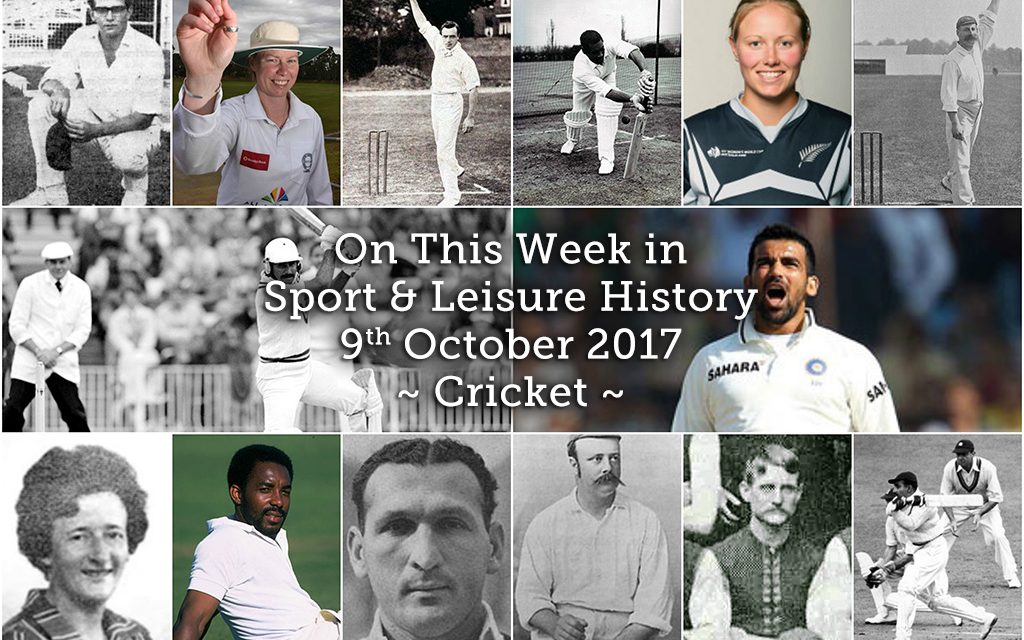
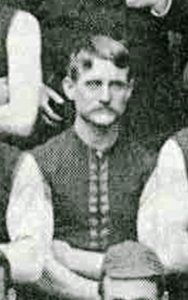
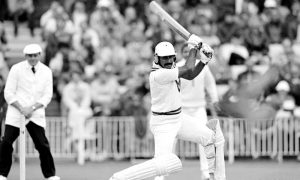
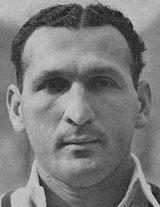
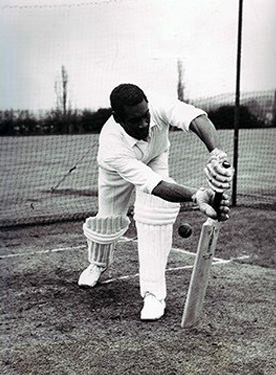
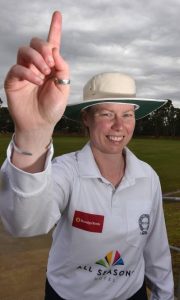
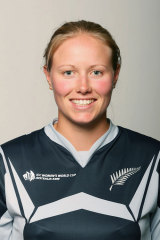
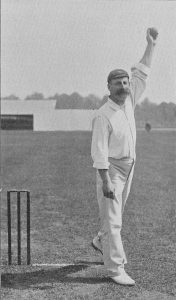
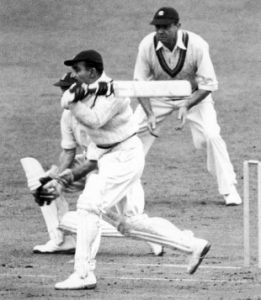
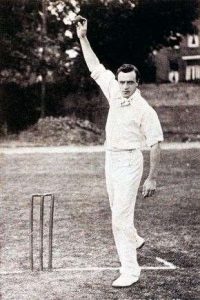
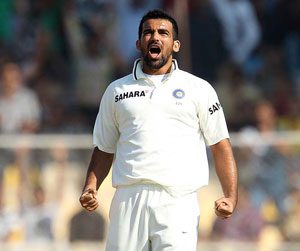
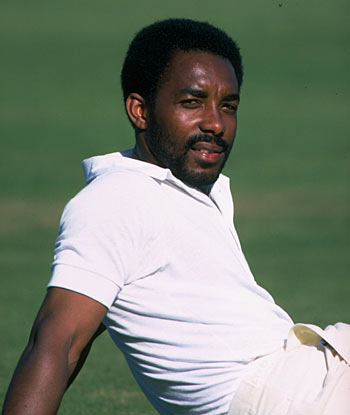
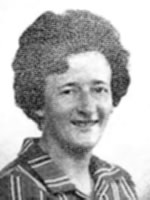
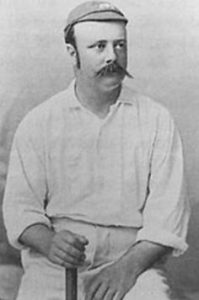
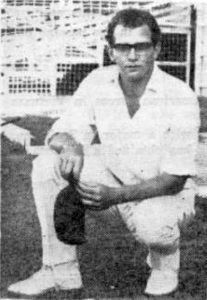

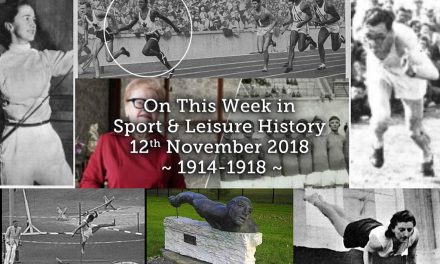


The year 2019 is going to be a busy one for Virat Kohli & Co as the Indian cricket team will be playing a number of series across the world